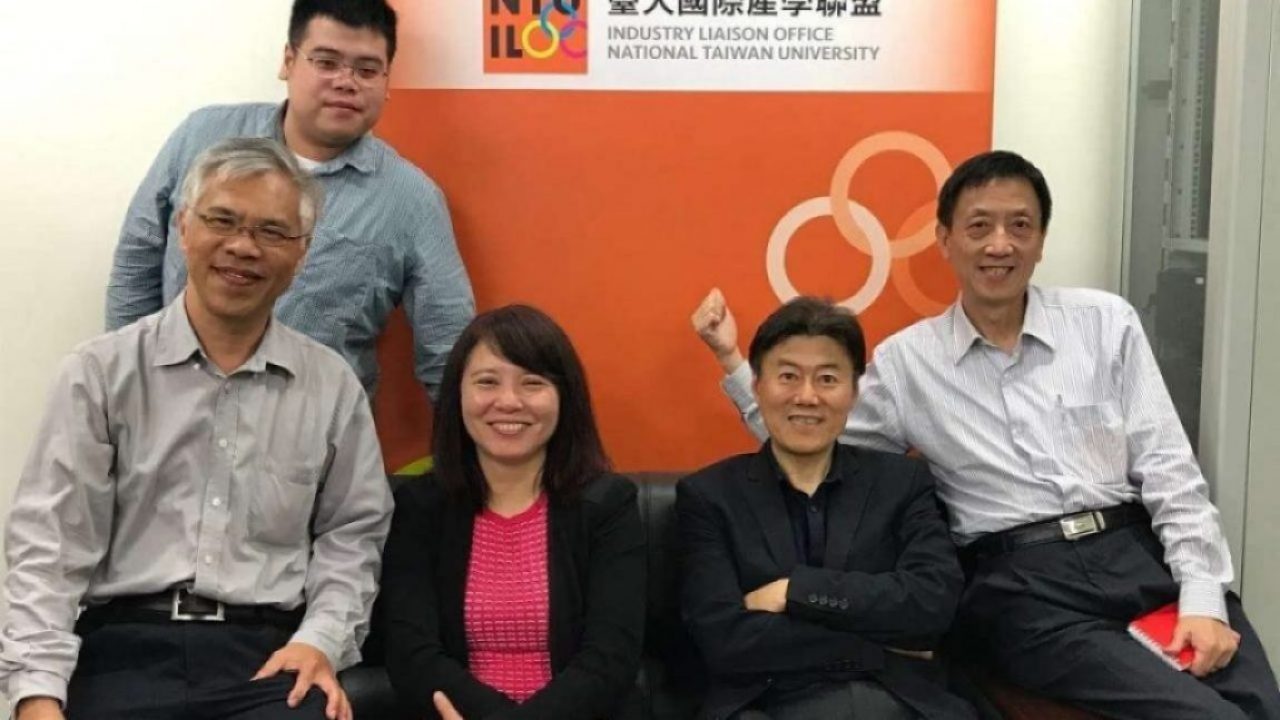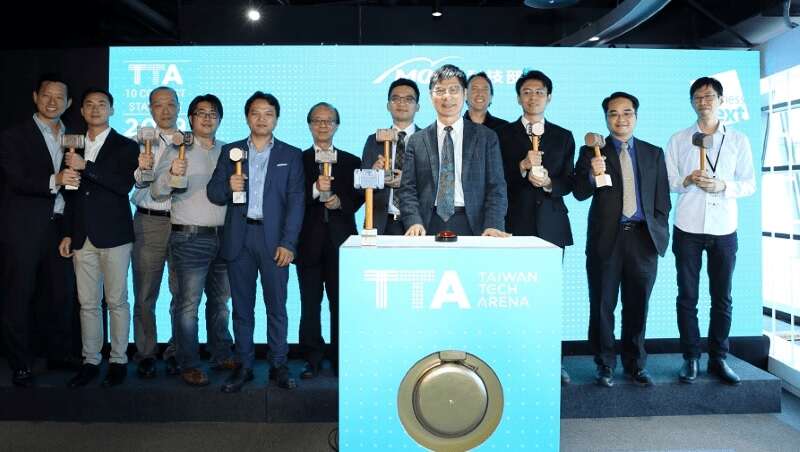Taiwan Hopes to Emulate Silicon Valley
Article By : Junko Yoshida

Taiwan today is trying to develop a startup infrastructure that Silicon Valley took 30 years to grow organically. Can Taiwan do it?
Engineering talent is the backbone of a tech startup ecosystem. In many instances, universities, their students and professors develop new ideas and sow the seeds, although they are not the only force behind the genesis of startups.
The infrastructure to support and nurture these enterprises needs strong industry backing, capital investment, government support and experienced business executives willing to serve as “angels” for fledgling companies.
Under a scenario in which universities are deemed a key ingredient in startup gestation, the buzzword for success is “industry-academia cooperation.”
In practice, the process needs more than a buzzword.
For example, a prestigious polytech like National Taiwan University has lots of smart EE students and their professors. Bursting with bright ideas and innovative technologies, these erstwhile academics are eager to launch startups — either on-campus or off. Their problem, students and professors, is precious little business experience in the dog-eat-engineer outside world.
Think of the movie Chariots of Fire. Harold Abrahams might have had the potential to be the world’s fastest runner when he entered Cambridge University in 1919. But indispensable to reaching his potential — his stunning victory in the 1924 Olympics in Paris — was the coaching of a professional trainer, Sam Mussabini.
Like Abrahams, the best and the brightest at the National Taiwan University can use a little professional advice. Established precisely to fill in the gap between the needs of industry and academia, the Industry Liaison Office (ILO) of the university, established in 2017, aspires to be Taiwan’s tech-startup Mussabini.
Knowing who's who on campus
In a recent interview with EE Times, David Peng, executive manager of the National Taiwan University (NTU) ILO, said that for any given startup born in academia to grow from its birth as a bright idea to a healthy commercial infancy, students and professors both need some coaching. “They need strategies” for writing business plans, proving concepts, developing product proofs, and finally convincing the commercial world that their ideas can sell.

For the ILO, however, working with professors and students is only half the equation.
Equally, perhaps even more, important is for the ILO to clearly intuit what the industry needs. “Businesses are always on the lookout for academic resources,” said Peng. Companies hunt relentlessly for the best talent.
But it isn’t practical for corporations to “visit different professors — door to door — to inquire about their research projects and the students they work with.” Peng noted, “ILO can be a single integrated window” for identifying the talent and resources on campus that fit a corporation’s profile.
“We bridge startups and the needs of the industry,” as Peng put it.
ILO has rolled out a membership system. Corporations interested in working with NTU are solicited for membership and pay an annual fee. The membership is a multi-tiered system.
Considering how deeply the ILO is plugged into campus life, Peng is confident that its corporate members will get plenty bang for their buck. NTU’s ILO takes pride in its knowledge of who’s who on campus – tuned in early to which professors are pursuing which research topics. The ILO is currently working with eleven colleges within the NTU. Each college has its own “world-class” research centers, Peng added. There are about 100 startups operating on campus — including some founded by NTU professors and some started by outside founders. “We are in a good position to ‘plug and play,’ between startups who need industry help, and the industry looking for academic resources,” explained Peng.
Notably, the ILO’s internal experts can all claim “industry experience.” Executive manager Peng, for example, has 25 years in the private sector, 10 years at AT&T and 15 years working for IBM. With his computer science background, he told us his focus — although before the era of “big data” — was data mining and data analysis to generate business intelligence. Peng, who oversaw a team of 200 people before retiring from IBM in 2014, also has background working at a startup.
ILO’s team leans more toward subject matter expertise than bureaucracy. They come from leading companies in diversified fields, from data science to microelectronics.
Intel, AUO, Qualcomm…
So which corporations has the NTU ILO already signed? Because NTU is Taiwan’s top university, Taiwan Semiconductor Manufacturing Co. (TSMC) maintains close relationships with a slew of professors, students and research centers within the NTU.
ILO’s other corporate members include Intel Corp. (working with NTU researchers on IoT) and AUO (AU Optronics) supporting startups on vertical accelerator development, Peng said.
Separately, Qualcomm recently signed an agreement with the ILO. Under the deal, several professors at the NTU are working with Qualcomm to develop AI chips, 5G and 3D.
Taiwan’s edge
After all is said and done, the NTU ILO is emulating industry liaisons that Massachusetts Institute of Technology (MIT) and Stanford University have already tried, tested and proven wildly successful.
The MIT Industrial Liaison Program (ILP), for instance, boasts “more than 200 of the world’s leading companies” partnering today to advance research at MIT. Further, MIT points out that ILP member companies account for approximately 53 percent of all the school’s corporate gifts and single-sponsored research expenditures.
Peng acknowledged that the goal for NTU’s ILO is to be just as financially successful as MIT’s ILP. Operating on an annual budget between $2 million to $3 million (over the next four to six years) provided by Taiwan’s Ministry of Science and Technology (MOST), the ILO ultimately hopes to become financially independent.
But how does a university in Taiwan compete with MIT? What’s NTU’s edge compared to other globally renowned academic institutions? The answer is: Location, location, location.
Peng explained, “It’s Taiwan’s proximity to China.” He went on to add “Taiwan’s experience in hardware, and Taiwan’s expertise in biomedical fields backed by Taiwan’s National Health Research Institutes (NHRI).”
NHRI, a non-profit foundation dedicated to medical research and improved healthcare, is most notably known for many advanced clinical trials, and the vast clinical data it has collected. Besides being the top-ranked EE college in Asia, NTU is known for its biomedical research collaboration with NHRI. Big pharmaceutical companies such as Pfizer and Johnson & Johnson are NTU’s partners.
Specific to electronics, NTU’s research center is equipped with its own MEMS foundry, for example. The lab can perform a first-cut test and proof of concept of new devices. Equally important, as Peng noted, is that a proof of concept, or all the test results of hardware and software, can be “directly linked to the global market.” Taiwan is “the first stop” for many companies vying to penetrate the Chinese market, Peng explained.
Taiwan: a latecomer to the global startup scene
In an era when every industrial park wants to be the next Silicon Valley, Taiwan is relatively new to a global startup movement sweeping recently through cities that include Paris, London and Berlin and others.
But being late doesn’t necessarily reflect negatively. Taiwan is absorbing every tip and trick that its predecessors have already field-tested.
Taiwan’s pursuit to build a startup ecosystem is serious and persistent. Government agencies, the education system and industry are working together to marshal the essential ingredients that can make startups succeed.
Both Taiwan’s Ministry of Science and Technology (MOST) and Ministry of Education, for example, are campaigning to bring back Taiwanese professors and post-docs living abroad. Liang-Gee Chen, minister at MOST, told EE Times last month that Taiwan is offering teaching positions – annually – to Taiwanese expatriates.
Last year, MOST helped open the Taiwan Tech Arena (TTA) in Taipei, seeking to build Asia’s best tech startup ecosystem. With room to house 100 startups, TTA recruits not just Taiwan startups but also many accelerators from abroad. The mission is to “propel Taiwan onto the global startup stage,” said Minister Chen.

MOST also funds the NTU ILO. Aside from pursuing industry-academia collaboration, the ILO is rolling out a new “internship program,” sending post-docs to work in Europe for six months. The organization is also working on a program to send delegates from Taiwan startups and accelerators to Silicon Valley for a couple weeks, to give them “global exposure.”
Recommended
An Interview with Taiwan’s ‘King of Innovation’
In many ways, Taiwan today is trying to develop a startup infrastructure that Silicon Valley took 30 years to grow organically. Can Taiwan do it?
Many in Taiwan are hopeful. After all, Taiwan has a playbook, which worked before. When the Taiwanese government went out of its way to bring Morris Chang home, its concerted efforts eventually bore fruit with the invention of a foundry business. TSMC was founded in 1987, with a new business model that nobody in the world believed, at the time, could last.
MOST is advocating the tech startup initiative in Taiwan not because it’s fashionable, nor is it politically the right move.
For Minister Chen, deputy dean at the NTU college of Electrical Engineering and Computer Sciences between 2009 and 2012, then EVP of academics and research, this is an act of faith based in personal experience.
Peng and others at the ILO told EE Times that Chen, at NTU, was nicknamed the “King of Innovation.” He was always restless, said Peng, constantly trying out various startup-related programs.
Chen told EE Times later that, “I was trying out an accelerator called ‘NTU Garage,’ like YCombinator, and ‘NTU Angel Fund.’ He noted, “Creating an environment for startups has always been my passion.”
Taiwan is applying a Chen-like determination to architect and accelerate the buildout of a startup ecosystem. NTU’s ILO has been created as the organizing force behind that architecture.
Subscribe to Newsletter
Test Qr code text s ss


